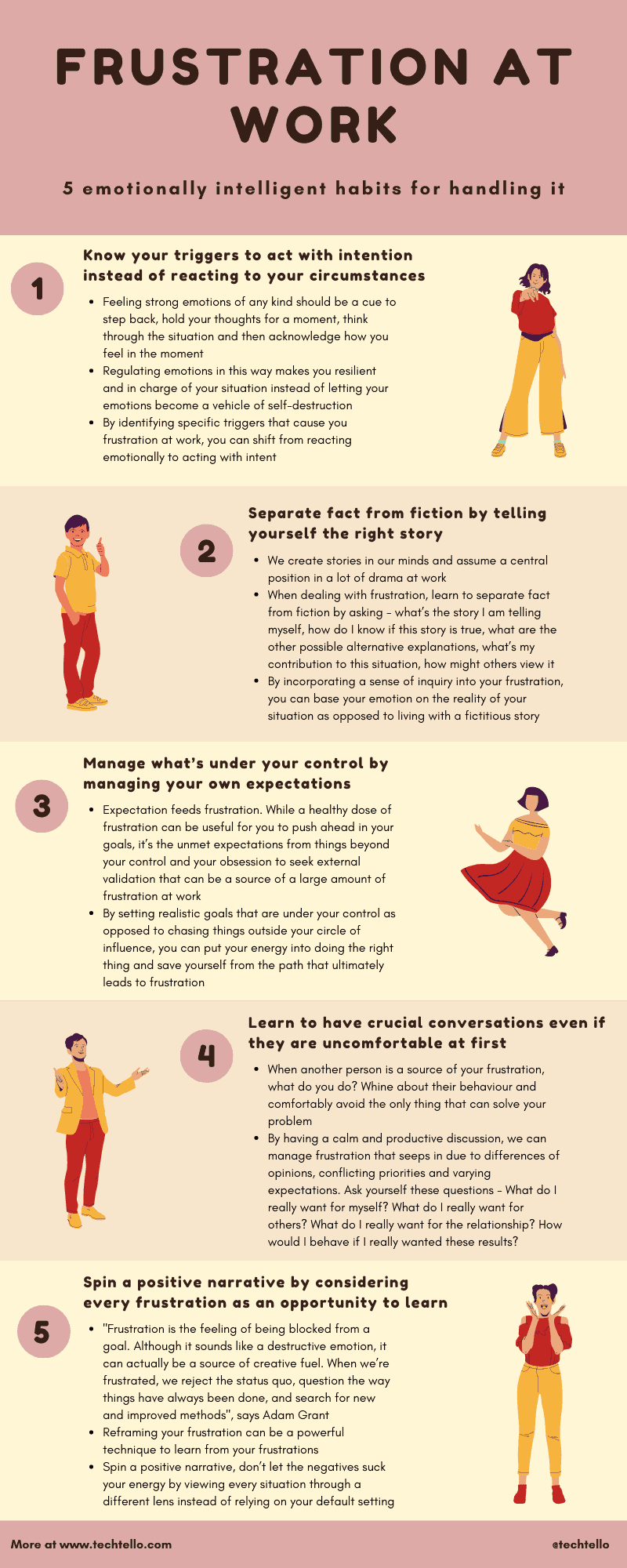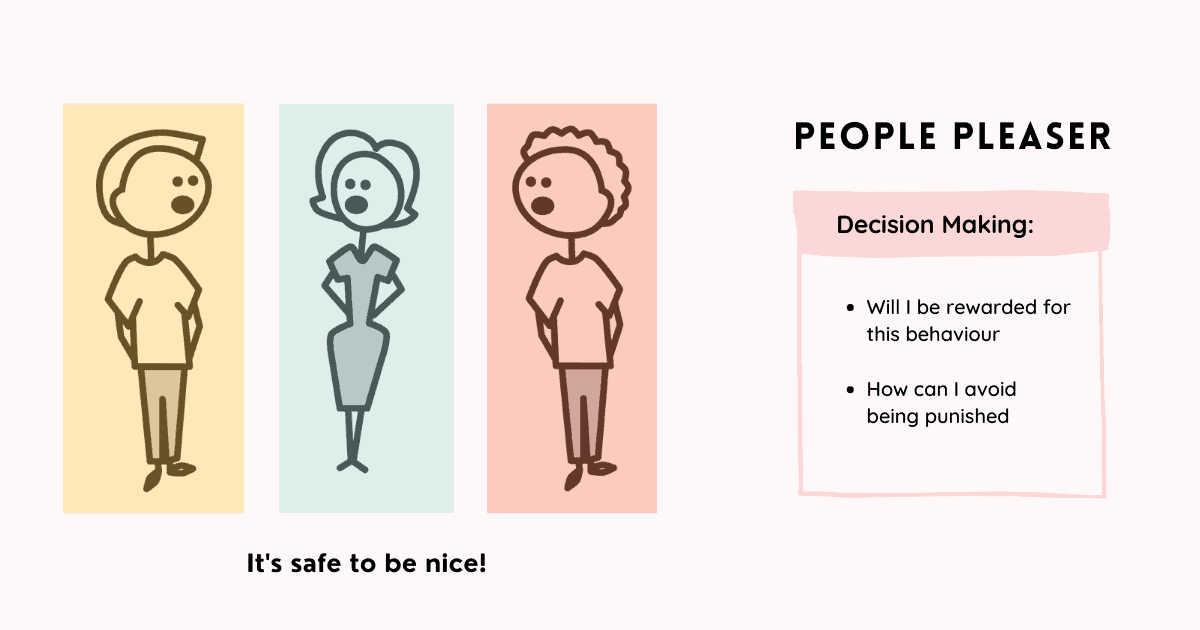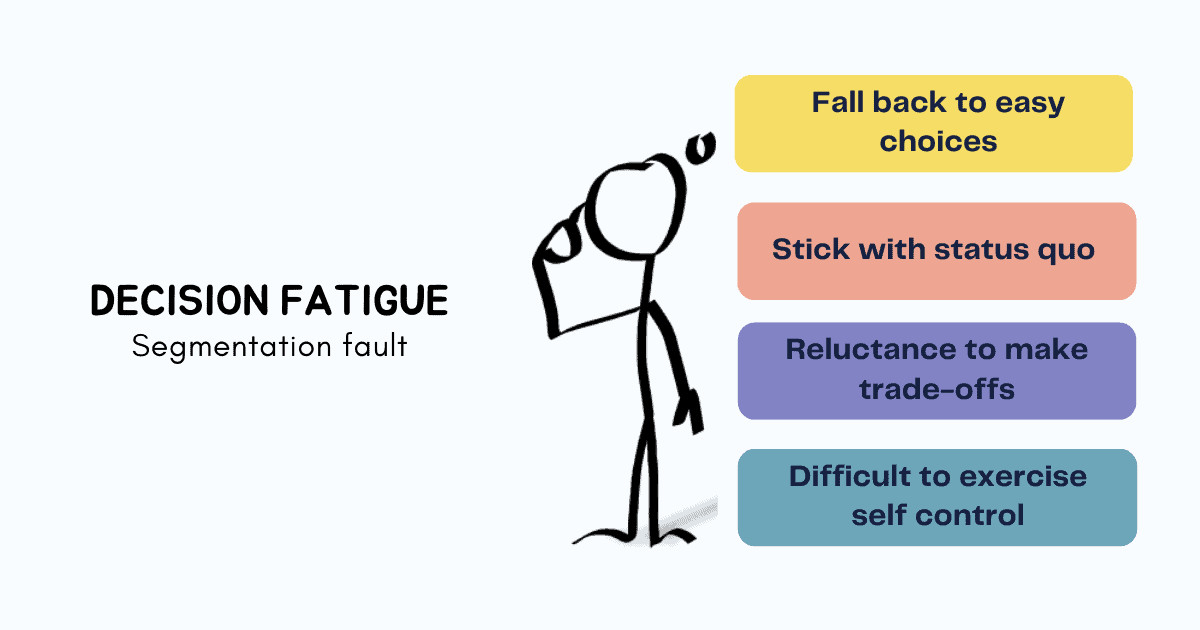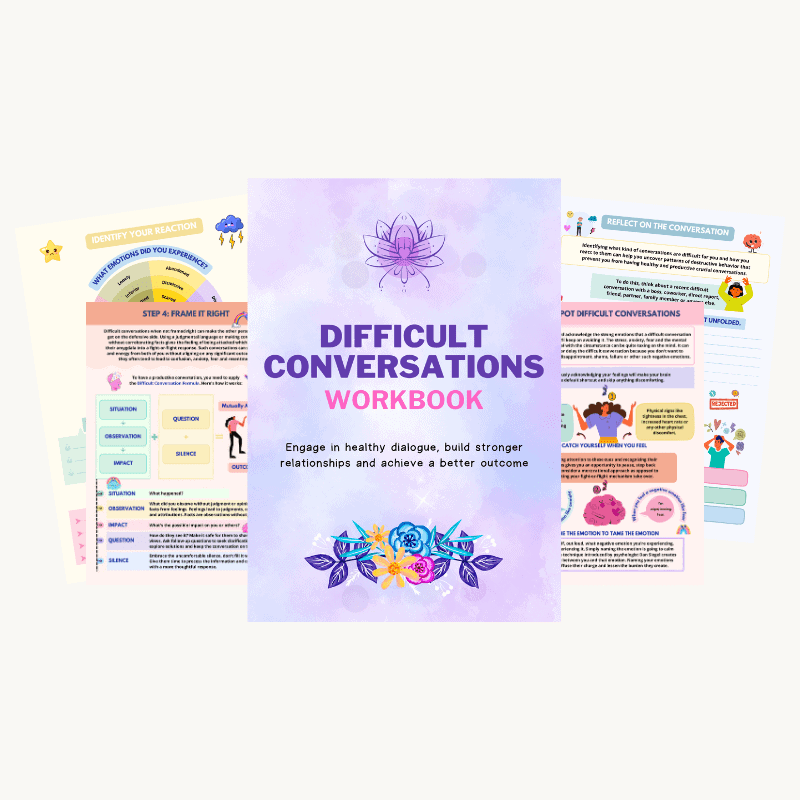5 Emotionally Intelligent Habits For Handling Frustration At Work
That sudden rush of anger when a coworker blames you, a feeling of disappointment when your idea is rejected, resentment towards an egocentric boss and the stress of meeting other people’s expectations can be a constant source of frustration at work.
Just like a rubber band you feel stretched to your limits, ready to break at any moment. One tiny push in the wrong direction can wreak havoc in your mind, break your world apart and distract you from being productive in your work.
Every single day there’s so much to dislike about work. Boss who doesn’t care, coworkers who are mean, clients who nitpick, support team that doesn’t care to respond, meetings that suck away into your time and energy and emails and messages that live in a world of their own with no sense of time.
Put this way, your frustrations seem completely rational. You have every right to feel frustrated about the way things are. Who likes to spend time resolving conflicts and dealing with other people’s mess.
Getting irritated by the things around you comes from your desire to be in control, your personal bias around how the world and people in it should be organised. It’s natural to crave a perfect work experience and feeling frustrated when one doesn’t exist.
But, are you focusing on the right thing? What do you do to deal with frustration that comes from not liking something?
After being stuck in a spiral of feeling frustrated, you panic about the situation, add stress and anxiety to your life, feel powerless with your situation and then do absolutely nothing about it.
So instead of wasting time overthinking through situations that cause you frustration at work, know that you cannot get rid of them, but you can learn to respond to them in a healthy manner.
Summing up in Aziz Gazipura’s words from Not Nice “I can choose to say yes, and I can choose to say no. I can hold back and keep quiet, or I can ask a tough question that challenges someone. If someone close to me is doing something that annoys me, I can bring it up and talk about it. When I really want something and the first response I get is a no, I ask questions and see if the other person is open to changing their mind. I’m completely free to choose exactly how I want to be in this moment, based on what feels right to me. I am the decider. I am the creator of my life.”
Unhandled frustration leads to unconscious defence and impairs judgment

Unhandled frustration at work leads to psychological displacement, a term coined by Sigmund Freud which is an unconscious defence mechanism in which our mind substitutes a new aim or a new object for goals felt in their original form to be dangerous or unacceptable. It operates in the mind unconsciously with transference of emotions, ideas and wishes in the face of aggressive impulses.
Snapping at your child or your spouse after a bad day at work is an example of this defense mechanism. Instead of managing your emotions from work productively, you deal with them by lashing out at your family since it’s much easier to react to them than acknowledging and handling whatever caused you frustration at work. You may feel guilty afterwards, but you unconsciously transfer your bitter experience from work to your family in the moment.
After a long battle of negotiating timelines with key stakeholders, you may easily lose your cool when a team member makes a small mistake. Without realising, your frustration from trying to convince your stakeholders to be realistic in their demands may show up with your team member who’s an easy target to vent it out.
By ignoring whatever annoys you about work, you let the inner conflict bubble up inside. It can lead to a cycle of rumination – why did the person behave this way, what have I done to deserve this, why does this happen to me and so on.
Without expressing how you feel and learning to get past it, the stress and anxiety that comes from unhandled frustrations can cloud your critical thinking skills, cause you to reject ideas, become inflexible to change and even overreact.
Amy Arnsten, an American neuroscientist explains how stress can impair judgment “The release of high levels of catecholamines during uncontrollable stress rapidly switches the brain from a thoughtful, reflective state to a more unconscious, reflexive state. This may save our lives when we are in danger, but it is often unhelpful when we need top-down control to properly guide our actions and decisions”
By handling frustrations well, you can remove unhealthy distractions, focus on work that adds value and build better relationships in life.
5 emotionally intelligent habits to deal with frustration at work
1. Know your triggers to act with intention instead of reacting to your circumstances
“Know yourself and you will win all battles”, says Sun Tzu, an ancient Chinese philosopher.
Feeling strong emotions of any kind should be a cue to step back, hold your thoughts for a moment, think through the situation and then acknowledge how you feel in the moment. Regulating emotions in this way makes you resilient and in charge of your situation instead of letting your emotions become a vehicle of self-destruction.
By identifying specific triggers that cause you frustration at work, you can shift from reacting emotionally to acting with intent.
Applying David Rock’s SCARF model from Your Brain At Work is a powerful way to connect to your emotion. He states “It’s a way of developing language for experiences that may be otherwise unconscious so that you can catch these experiences occurring in real time”
When feeling frustrated, identify which of these is a trigger for your emotion –
- S – Status: Do you view the situation as a status threat?
- C – Certainty: Are you unclear about expectations and your future?
- A – Autonomy: Do you feel powerless to make your own decisions?
- R – Relatedness: Do you find it hard to connect to others since they seem unreal and inauthentic?
- F – Fairness: Is it a matter of not being treated fairly compared to others?
These five domains of social experience can be a powerful tool to give language to your experience instead of letting your subconscious react to the situation.
Self-Compassion Workbook
Cultivate kindness and strength in the face of difficulty and foster a new, more gentle and loving perspective on your struggles.
2. Separate fact from fiction by telling yourself the right story
We create stories in our minds and assume a central position in a lot of drama at work even when we hardly have a role to play.
“Intentions are invisible. We assume them from other people’s behavior. In other words, we make them up, we invent them. But our invented stories about other people’s intentions are accurate much less often than we think. Why? Because people’s intentions, like so much else in difficult conversations, are complex. Sometimes people act with mixed intentions. Sometimes they act with no intention, or at least none related to us. And sometimes they act on good intentions that nonetheless hurt us”, writes Douglas Stone in Difficult Conversations.
It’s our tendency to exaggerate every situation that makes us fall for the common thinking traps that clouds our judgment – we assume everyone is out to get us, find it hard to separate fact from fiction and create a narrative that validates our beliefs and assumptions while disregarding everything that contradicts our point of view.
Confirmation bias and availability heuristic make us highlight the negativity of our feelings while pushing the positive emotions aside.
Adam Grant, an organisational psychologist says “The most useful advice doesn’t specify what to do; it helps people see blind spots in their thinking and clarify their priorities”
When dealing with frustration at work, learn to separate fact from fiction by asking yourself these questions:
- What’s the story I am telling myself
- How do I know if this story is true
- What are the other possible alternative explanations
- What’s my contribution to this situation
- How might others view it
By incorporating a sense of inquiry into your frustration, you can base your emotion on the reality of your situation as opposed to living with a fictitious story.
3. Manage what’s under your control by managing your own expectations
Expectation feeds frustration. While a healthy dose of frustration can be useful for you to push ahead in your goals, it’s the unmet expectations from things beyond your control and your obsession to seek external validation that can be a source of a large amount of frustration at work.
“We put constant pressure on ourselves to always be our best and then feel exhausted when we fail to live up to this unrealistic standard. And when we depend on our bosses for validation, the smallest bit of critical feedback starts to feel like a rejection of our entire selves”, writes Liz Fosslien in No Hard Feelings.
You can control how you do certain things, but cannot dictate how others will respond to it. Putting in unnecessary effort to please others, considering approval as a sense of your worth and expecting people to behave in certain ways can be a source of constant disappointment and frustration at work.
By setting realistic goals that are under your control as opposed to chasing things outside your circle of influence, you can put your energy into doing the right thing and save yourself from the path that ultimately leads to frustration.
4. Learn to have crucial conversations even if they are uncomfortable at first
When another person is a source of your frustration – a micromanaging boss who’s constantly telling you what to do, a senior person who exerts their authority, product team member who can’t seem to make up her mind on a feature or a client pushing you to commit to unrealistic timelines, what do you do? Whine about their behaviour and comfortably avoid the only thing that can solve your problem.
Difficult conversations are uncomfortable no doubt. We are trained as a species to avoid conflicts as it requires going against our very basic instinct of fight-or-flight. “Every time we find ourselves arguing, debating, running away, or otherwise acting in an ineffective way, it’s because we don’t know how to share meaning. Instead of engaging in healthy dialogue, we play silly and costly games”, says Joseph Grenny in Crucial Conversations.
By having a calm and productive discussion, we can manage frustration at work that seeps in due to differences of opinions, conflicting priorities and varying expectations. Joseph advises to ask yourself these questions:
- What do I really want for myself?
- What do I really want for others?
- What do I really want for the relationship?
- How would I behave if I really wanted these results?
Instead of expressing your frustration, behave in a manner that will move you closer to the outcomes you desire.
5. Spin a positive narrative by considering every frustration as an opportunity to learn
Adam Grant, an organisational psychologist says in this NYT article –
“Disgruntled people often go into “Office Space” mode, choosing to fight by sabotaging the workplace, or flight by doing the bare minimum not to get fired. But there’s a third reaction to frustration that we’ve overlooked: When we are dissatisfied, instead of fight or flight, sometimes we invent”
He then goes on to say –
“Frustration is the feeling of being blocked from a goal. Although it sounds like a destructive emotion, it can actually be a source of creative fuel. When we’re frustrated, we reject the status quo, question the way things have always been done, and search for new and improved methods”
Reframing your frustration can be a powerful technique to learn from your frustrations.
Learning about your own shortcomings can be frustrating or an opportunity to improve and grow. A bad manager can be a constant source of frustration or a perfect example of what not to become. Repeating the same task day-in-day out can be super frustrating or an opportunity to automate. A rejected proposal could be a sign to cave in or a means to think big and try harder.
Spin a positive narrative, don’t let the negatives suck your energy by viewing every situation through a different lens instead of relying on your default setting.
What to say when someone is frustrated with work
Sometimes you may be the wise one put in a position to give advice to others. What if a friend or a colleague expresses their frustration at work.
Instead of certifying their feelings by adding your own stories to the mix, try to be of help by asking these questions:
- What’s most frustrating about this situation
- How do you think your actions contributed to this frustration
- How do others view this situation, what’s their story
- Are you worried about something that’s within your control or outside it
- What do you expect as the outcome of this conflict
- What have you done to resolve it
- What does this teach you about yourself and others
By engaging with them using a growth mindset, you can help them move from complaining about their frustration to finding a solution. You can help them realise their power to choose, to be the creator of their own life.
You can either let frustrations suck away into your time, prevent you from achieving your goals and impact your well being by adding stress and anxiety to your life or you can make small changes around you and dim down the effect of these frustrations by acting intentionally, avoiding thinking traps, setting right expectations, engaging in healthy dialogues and turning every frustration into an opportunity to learn and grow.
Which one do you choose? Write to me or share your thoughts in the comments below.































I’m so glad I found this page! It helped me get through feelings of frustration and anger I’ve been feeling about work by setting me on a better path, mentally. I was able to go into a conversation with my manager this morning with calm and thoughtful conversation instead of with emotion. Thank you!
Thank you Jill. I hope you will continue to apply these practices in your life. All the best!!
I’m so glad to have found this page! I fear that the consistency of my frustration at work is a sign that I need to readjust my expectations instead of blaming others when things feel out of my control. Saving this for when I need a reminder to reevaluate.
Indeed a great decision Lacey. Focus on things that are within your control and you will always achieve remarkable results. All the best!
I am so glad I found this article! My only wish is it was sooner, that said I have bookmarked as a go to resource . I can relate to Jill & Lacey as well. Good luck as you work through it. Tracy
Thank you Tracy. Glad you find it helpful. Hope you will put the strategies in this article into practice.
All the best,
Vinita
Thank you so much for your thoughtful writing! This is a really great tool to keep in my belt for the future.
I am trying to learn to not take people’s lack of co-operation and respect oersonally.
Hello, just wanted to leave a positive note here, I found this article so in touch with what I am going through at work currently. Ever since I became Manager of my department it has been a struggle to keep my sanity without turning people away with my attitude, as I try to keep everyone happy but myself. After reading this article, I learned to control what I can and what you can’t just it let it go. Love this reading, I will definitely recommend.